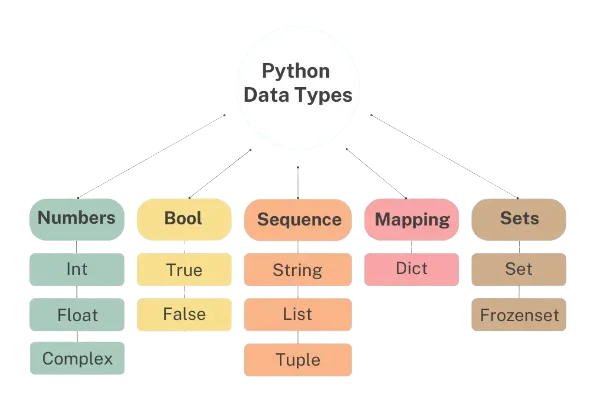Table of Contents
ToggleIntroduction
SQL, or Structured Query Language, is a programming language used to manage and manipulate data stored in relational databases. It is commonly used in the field of data analytics and business intelligence to extract insights and make informed decisions based on data.
SQL consists of a set of commands that can be used to create, update, delete, and query data stored in a database. Some common SQL commands include SELECT, INSERT, UPDATE, DELETE, and JOIN. These commands can be used to perform a wide range of tasks, from retrieving specific data from a database to updating multiple records at once.
SQL is a powerful tool for data analysis and management, and it is widely used in various industries. For example, a company might use SQL to analyze sales data and identify trends, or a healthcare organization might use it to track patient records and outcomes.
To become proficient in SQL, it is important to have a solid understanding of the language syntax and the various commands available. Practice is also key, as working with real-world data and solving problems can help to build skills and confidence. By mastering SQL, you can gain valuable insights from data and improve decision-making in your organization.
Basic SQL Practice Questions for Beginners

SQL (Structured Query Language) is a programming language that is used to manage and manipulate relational databases. As a beginner, it is important to understand the basics of SQL and how to write basic sql code queries.
Here are some basic SQL practice questions for beginners:
How do you select all columns from a table?
To select all columns from a table, you can use the following SQL statement:
SELECT * FROM table_name;
How do you select specific columns from a table?
To select specific columns from a table, you can use the following SQL statement:
SELECT column1, column2, … FROM table_name;
How do you filter data using the WHERE clause?
To filter data using the WHERE clause, you can use the following SQL statement:
SELECT * FROM table_name WHERE condition;
For example, to select all the rows from a table where the value of column1 is equal to ‘value’, you can use the following SQL statement:
SELECT * FROM table_name WHERE column1 = ‘value’;
How do you sort data using the ORDER BY clause?
To sort data using the ORDER BY clause, you can use the following SQL statement:
SELECT * FROM table_name ORDER BY column1, column2 DESC;
In this example, the data is sorted by column1 in ascending order, and then by column2 in descending order.
How do you group data using the GROUP BY clause?
To group data using the GROUP BY clause, you can use the following SQL statement:
SELECT column1, COUNT(*) FROM table_name GROUP BY column1;
In this example, the data is grouped by column1, and the number of rows in each group is counted.
These are some basic SQL practice for beginners. As you become more familiar with SQL, you can learn more advanced SQL concepts and techniques to manage and manipulate databases effectively.
Intermediate SQL Practice Questions for Advanced Users

SQL, or Structured Query Language, is a widely-used programming language for managing and manipulating data stored in relational databases. Advanced users of SQL may encounter complex queries that require a deeper understanding of the language and its syntax. Here are a few intermediate-level practice questions that can help advanced users improve their SQL skills:
Write a SQL query to find the second highest salary in a table.
To find the second highest salary in a table, we can use a subquery to select the maximum salary, and then select the salary that is less than the maximum salary but greater than all other salaries in the table. Here’s an example query:
SELECT MAX(salary) FROM employees WHERE salary < (SELECT MAX(salary) FROM employees);
Write a SQL query to find the top 5 products by revenue.
To find the top 5 products by revenue, we can use the GROUP BY clause to group sales by product, and then use the SUM function to calculate the total revenue for each product. We can then use the ORDER BY clause to sort the products by revenue in descending order, and the LIMIT clause to limit the results to the top 5 products. Here’s an example query:
SELECT product, SUM(revenue) AS total_revenue FROM sales GROUP BY product ORDER BY total_revenue DESC LIMIT 5;
Write a SQL query to calculate the running total of sales by month.
To calculate the running total of sales by month, we can use the SUM() window function with the OVER clause to calculate the cumulative sum of sales over each month. Here’s an example query:
SELECT date_trunc(‘month’, sale_date) AS month, SUM(revenue) OVER (ORDER BY date_trunc(‘month’, sale_date)) AS running_total FROM sales;
These intermediate-level SQL practice can help advanced users sharpen their SQL skills and become more proficient in using SQL to manage and manipulate data stored in relational databases.
Advanced SQL Practice Questions for Experts

For experts in SQL, there are advanced practice questions that can challenge their knowledge of the language and help them improve their skills. Here are a few examples:
Write a SQL query to find the top 3 customers with the highest average purchase amount in the last quarter.
To find the top 3 customers with the highest average purchase amount in the last quarter, we can use a combination of date functions and aggregations. We can filter for purchases made in the last quarter, group by customer, calculate the average purchase amount for each customer, order by the average purchase amount in descending order, and then limit the results to the top 3. Here’s an example query:
SELECT customer_id, AVG(amount) AS avg_purchase_amount
FROM purchases
WHERE purchase_date >= DATEADD(qq, DATEDIFF(qq, 0, GETDATE()) – 1, 0)
GROUP BY customer_id
ORDER BY avg_purchase_amount DESC
LIMIT 3;
Write a SQL query to find the top 5 products that have increased in sales by at least 50% compared to the previous month.
To find the top 5 products that have increased in sales by at least 50% compared to the previous month, we can use a self-join to compare sales for the current month to sales for the previous month, calculate the percentage increase, filter for products that have increased by at least 50%, order by the percentage increase in descending order, and then limit the results to the top 5. Here’s an example query:
SELECT s1.product_id, (s1.sales – s2.sales) / s2.sales AS pct_increase
FROM sales s1
JOIN sales s2
ON s1.product_id = s2.product_id
AND DATEADD(month, 1, s2.sale_date) = s1.sale_date
WHERE s1.sales >= s2.sales * 1.5
ORDER BY pct_increase DESC
LIMIT 5;
These advanced SQL practice require expert-level knowledge of the language and its syntax, and can help experts refine their skills in managing and manipulating data stored in relational databases.
SQL Practice Questions for Data Analy
sts

SQL (Structured Query Language) is a standard language used for managing and manipulating data in relational database management systems (RDBMS). It’s a critical skill for data analysts who need to extract, analyze, and interpret data stored in databases.
Here are some SQL practice questions that data analysts may encounter:
How can you retrieve all records from a table named ‘customers’?
SELECT * FROM customers;
How can you retrieve records from a table named ‘orders’ where the order status is ‘completed’?
SELECT * FROM orders WHERE status = ‘completed’;
How can you retrieve records from a table named ‘sales’ where the sale amount is greater than $1000?
SELECT * FROM sales WHERE amount > 1000;
How can you retrieve records from a table named ’employees’ where the employee’s age is between 25 and 35?
SELECT * FROM employees WHERE age BETWEEN 25 AND 35;
How can you retrieve records from a table named ‘products’ that match a certain keyword in the product name?
SELECT * FROM products WHERE product_name LIKE ‘%keyword%’;
These are just a few examples of SQL practice questions that data analysts may encounter. By mastering SQL, data analysts can efficiently manipulate and analyze data to draw valuable insights and make data-driven decisions.
SQL Practice Questions for Data Scientists
SQL (Structured Query Language) is a programming language that is widely used in managing and analyzing relational databases. Data scientists often use SQL to retrieve, manipulate, and analyze data from databases. SQL practice can help data scientists improve their SQL skills and become more proficient in using SQL to analyze data.
Some common SQL practice questions that data scientists may encounter include selecting data from tables, filtering data based on specific criteria, aggregating data using functions like SUM, COUNT, and AVG, joining data from multiple tables, and creating new tables or modifying existing tables.
For example, a SQL practice question might ask the data scientist to retrieve the top 10 highest-paid employees from a database. The data scientist would need to use the SELECT statement to choose the relevant columns, the FROM statement to specify the table, the ORDER BY statement to sort the data by salary, and the LIMIT statement to limit the results to the top 10.
By practicing SQL questions, data scientists can become more comfortable with SQL syntax and develop a better understanding of how to manipulate and analyze data using SQL. This can be particularly valuable for data scientists who work with large datasets or need to access data from multiple sources, as SQL can help them efficiently extract the information they need to perform their analysis.
SQL Practice Questions for Database Administrators
Structured Query Language (SQL) is a programming language used to manage relational databases. It is a crucial tool for Database Administrators (DBAs) who are responsible for designing, implementing, and maintaining databases. SQL enables DBAs to retrieve, update, and manipulate data stored in a database.
To become proficient in SQL, DBAs should practice writing SQL queries to perform various tasks such as data retrieval, data manipulation, and data analysis. Sample SQL practice questions for DBAs include selecting data from a single table or multiple tables, sorting and filtering data, joining tables, grouping data, and creating and modifying tables.
Practicing SQL queries helps DBAs to improve their problem-solving skills and increase their efficiency in managing databases. Additionally, DBAs can use SQL to perform tasks such as database backups, data migration, and database optimization. By becoming proficient in SQL, DBAs can ensure that their databases are properly maintained and optimized for optimal performance.
Read: data science course in gurgaon
SQL Practice Questions for Job Interviews
SQL (Structured Query Language) is a programming language used to manage and manipulate data in relational databases. It is commonly used in job interviews for roles in data analytics, data engineering, and database administration. Employers often use SQL practice questions to evaluate candidates’ knowledge and skills in the language.
SQL practice questions for job interviews can vary in difficulty and focus, but typically cover topics such as basic syntax, data querying and manipulation, database design, and performance optimization. Candidates may be asked to write SQL queries to retrieve specific data from a database, join multiple tables together, calculate aggregates, or modify existing data. They may also be asked to demonstrate their knowledge of database design principles and optimization techniques.
In order to prepare for SQL practice in job interviews, candidates should review and practice their SQL skills regularly, familiarize themselves with common interview question formats, and work on building their problem-solving and critical thinking abilities. Additionally, candidates may find it helpful to review job postings and company websites to understand the specific SQL-related skills and requirements for the roles they are interested in.
Resources for More SQL Practice Questions
SQL (Structured Query Language) is a powerful tool used to manage and manipulate data in relational databases. To become proficient in SQL, practice is crucial. There are many online resources that provide SQL practice to help you improve your skills.
Some popular websites that offer SQL practice questions include HackerRank, LeetCode, and SQL Zoo. These websites offer a variety of SQL problems, ranging from basic to advanced, and cover a wide range of topics such as querying, filtering, sorting, and joining tables.
Another useful resource for SQL practice is Kaggle, a platform for data science competitions and projects. Kaggle offers a variety of datasets with corresponding SQL challenges that allow you to practice your skills in a real-world context.
Finally, many SQL courses and textbooks include practice problems and exercises to help reinforce your understanding of the material. These resources are especially helpful for beginners, as they often provide step-by-step guidance and explanations of key concepts.
In summary, there are many online resources available for SQL practice, including HackerRank, LeetCode, SQL Zoo, Kaggle, and SQL courses and textbooks. Practicing with these resources can help you master SQL and become more proficient in managing and manipulating data in relational databases.
Conclusion
In conclusion, practicing SQL is essential for becoming proficient in managing and manipulating data in relational databases. There are many online resources available for SQL practice questions, such as HackerRank, LeetCode, SQL Zoo, Kaggle, and SQL courses and textbooks.
These resources offer a variety of SQL problems, ranging from basic to advanced, covering various topics such as querying, filtering, sorting, and joining tables. They are particularly useful for beginners, as they often provide step-by-step guidance and explanations of key concepts.
By practicing SQL with these resources, you can reinforce your understanding
of SQL, develop your problem-solving skills, and gain confidence in using SQL to manage and manipulate data. With continued practice, you can become a skilled SQL developer and unlock the full potential of relational databases.
Frequently Asked Questions
What are SQL practice questions?
SQL practice questions are a set of exercises designed to test your SQL knowledge and skills. They typically include a series of SQL problems that require you to write queries to retrieve, manipulate, and analyze data from a database.
Why are SQL practice questions important?
SQL practice questions are important because they allow you to apply the knowledge you have learned about SQL to real-world scenarios. By practicing with SQL problems, you can sharpen your skills, identify areas for improvement, and prepare for SQL interviews or exams.
Where can I find SQL practice questions?
There are many resources available online for SQL practice questions, including websites, blogs, and forums. Some popular websites for SQL practice questions include Hackerrank, LeetCode, and SQL Zoo.
What kind of SQL problems can I expect in SQL practice questions?
SQL practice questions can cover a wide range of topics, including basic SQL queries, data aggregation, filtering and sorting, joins, subqueries, and more advanced topics like window functions, recursive queries, and performance tuning.
How can I improve my performance on SQL practice questions?
To improve your performance on SQL practice questions, it’s important to review and understand the underlying SQL concepts and syntax. Practice writing SQL queries regularly, and try to solve problems using multiple approaches. You can also seek feedback from others and learn from their solutions to identify areas for improvement.













